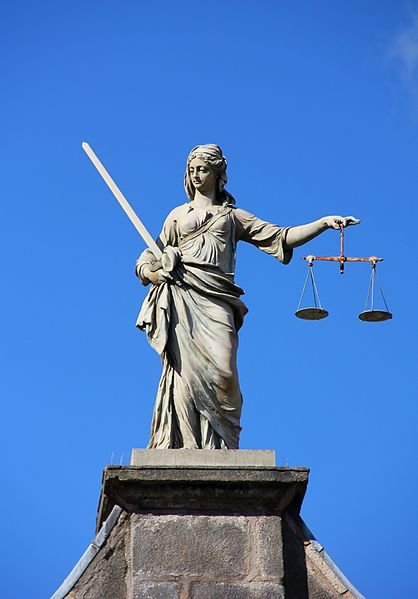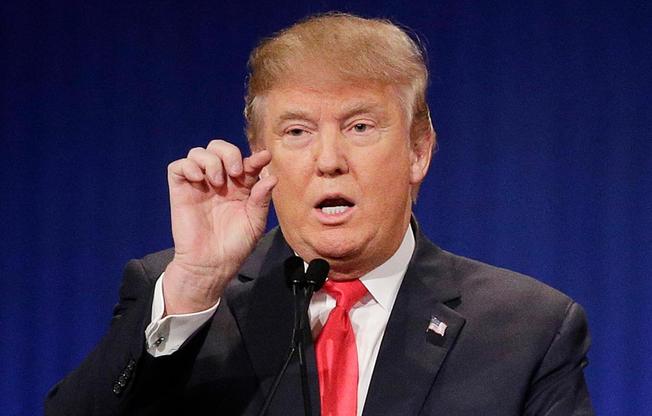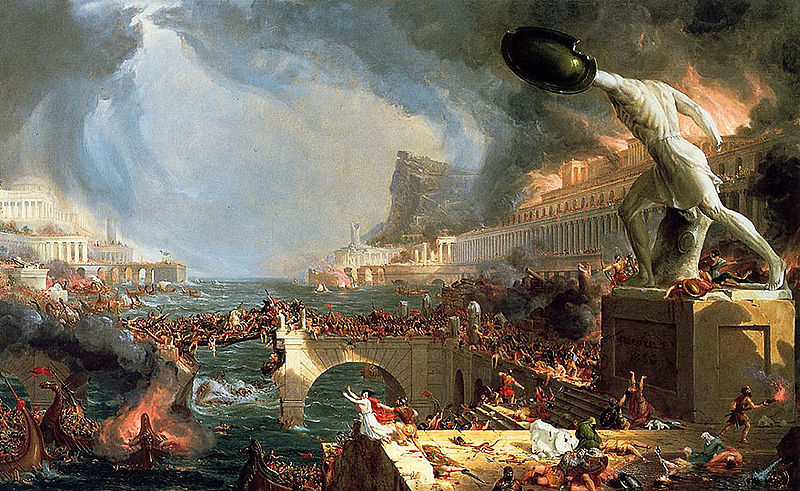Amidst all the screaming about Trump, there is a feeling that he is being unfair by singling out various companies for attack.
This is true.
It is also special pleading.
What Trump is doing, and what he will almost certainly do when he is in office, is pick out specific groups and individuals, and he will very likely use the weight of the state against them.
Oh dear. Oh dear.
This is rule by men, yes. It has also been going on for years. Anti-war protestors and environmentalists have been singled out for special attention on the positive side of the scale.
Meanwhile, on the negative end of the stick, let us compare two financial crises. In the eighties, there was a financial crisis too, filled with tons of fraud, called the Savings and Loan crisis. It happened under a Republican president.
Executives were charged, and they went to jail.
In 2007-2008, we had a financial crisis, and from 2009 on, Obama’s DOJ applied fines, not criminal charges. Those fines immunized the participants, and since they did not take money from those who had benefited (and were often less than the profits taken by the corporation, even) they did not dis-incentivize criminal acts. Instead, the DOJ said: “There is no real penalty, so make the money when you can, and we’ll immunize you for a token fee.”
There is no question in any reasonable person’s mind that many executives had engaged in fraud, negligence, and criminal conspiracy which could have been indicted under RICO.
But hey, they were let off. Meanwhile, people who applied for mortgage relief were deliberately given the run-around and fucked over, losing their houses (see David Dayen’s “Chain of Title” if you need the blow-by-blow.) Robo-signing by financial institutions, post-financial crisis, was also mass fraud, attesting to facts the signers had no knowledge of.
America is already a nation of men, not laws. One can say, “It has always been thus,” and there is some truth to that, but it is more a lie than true: see the S&L crisis.
People have already been getting away with lawbreaking–depending on who they are–and not small numbers of people. And if you don’t think various firms haven’t been picked out for special, positive favors, you simply haven’t been paying attention.
2000’s Gore vs. Bush ruling was “men over laws.” It was such a bad ruling that the Supreme Court tried to say it couldn’t be used as a precedent. Meanwhile, the protections of law in general were gutted: the Patriot Act, the AUMF, the rise of the vast surveillance state with its clear industrial-scale violations of the Fourth Amendment. Most Americans live in a border zone, where they don’t have freedom from arbitrary search and seizure. As for the First Amendment, the existence of “First Amendment Zones” tells you all you need to know.
Trump’s behaviour is and will be the direct consequence of how many previous Presidents acted, including Obama (who notably killed an American citizen without any trial and claimed the right to do so).
To cry now, and especially to weep for large corporations who are bad actors, is hilariously hypocritical and intensely revealing. “Trump blackmailed them into keeping a few jobs in America, that tyrant!”
Oh, My, God, the funny. Now yes, Trump has also called out people for terrible reasons. Oh well. Yes, that’s a new bad thing (though not worse than killing a US citizen without trial, the right to face his accusers, or see the evidence presented against him), but I just find it hard to get very worked up over.
You already lost your rule of law. There are a few places one can date the loss to, but I put it in Obama’s mass-immunization of financial executives. You could argue for Bush vs. Gore or a number of other places.
But wherever you put it, it already happened.
You have the rule of men. For certain people, the law is interpreted and enforced differently.
This, folks, was at the heart of Trump’s attacks on Clinton for e-mail, which liberals laughed off. But we all know that if some peon had done the exact same thing, they would have been ruined and probably gone to jail.
You already lost rule of laws, and had rule of men.
You have already paid a frightful price for this. The reason your economy is so bad is because bankers were immunized and bailed out, staying in charge of your economy when they are incompetent crooks and ordinary people were not bailed out.
Not coincidentally, minus not bailing out ordinary people, Trump does not win election in 2016. (He also wouldn’t have won if Obamacare was not so flawed, but that’s another post.)
Trump is just the continued price for breaking your own laws and constitution, and your own unwritten norms.
As such he falls under “as you sow, so shall you reap”.
Until large numbers of Americans see it this way, including at least some faction of elites or would-be-elites, there can be no true fix for this situation, whatever happens with Trump.
Trump is the symptom, not the disease, and until you treat the disease, things like Trump (or the financial crisis and the lack of real recovery from that crisis) will continue to happen, and fools will continue to be bewildered by them, as if the very public actions of the people they elected had not led to them.
Machiavelli wrote, and America’s founders agreed, that good men could make bad laws work, and that good laws could not save bad men.
The founders’ equivalent was that eventually Americans would become so degraded that they could only be ruled by despots.
Americans have given many signs of being this degraded, and now it’s up to Americans to prove that they aren’t.
Don’t dare to say this is all on “deplorables” or Republicans, because Democrats have not just been complicit in all of this, they have spurred it on in deliberate ways–as with Obama on surveillance, drone murder, and whistleblowers.
It is on Americans.
Americans are reaping as they have sown. That all Americans are not bad or degraded is not the point. Enough of you are, and your elites are corrupt as a class, so much so that I would easily expect, in nine or ten years, to be fundamentally unethical and unsuited to public life. That includes, by the way, Bill Clinton, Bush Jr., Obama and Hillary Clinton.
Trump is what Americans have earned.
The results of the work I do, like this article, are free, but food isn’t, so if you value my work, please DONATE or SUBSCRIBE.




